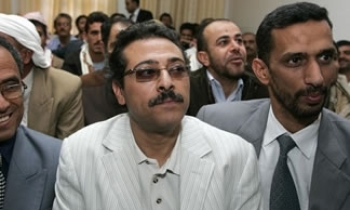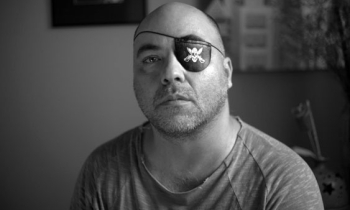Six contributors to opposition radio station La Voix de Djibouti – Farah Abadid Hildid, Houssein Ahmed Farah, Houssein Robleh Dabar, Abdillahi Aden Ali, Moustapha Abdourahman Houssein and Mohamed Ibrahim Waïss – were finally released June 23 evening after more than four months in Djibouti’s Gabode prison.
After several appeals to Djibouti’s supreme court, an appeal court ruled on June 22 that they should be released conditionally and placed under judicial control pending trial.
Hildid was tortured by gendarmes during his four days in police custody before being transferred to prison on February 9. Both Hildid and Farah used to work for the banned opposition weekly Le Renouveau.
“La Voix de Djibouti’s reporters and informants are the victims of a government-orchestrated operation aimed at throttling the opposition,” Paris-based press freedom group Reporters sans Frontières (RSF) secretary-general Jean-François Julliard said. “After banning, in 2007, Le Renouveau, which supported the Movement for Democratic Renewal and Development (MRD), the authorities imposed a news blackout on the protests that took place in February. They are targeting the last people who are likely to be sources of information.”
Julliard added: “Media freedom poses a thorny problem for President Ismael Omar Guelleh and his government, who have chosen to suppress it and censor independent media, regardless of the law and the requirements of democracy.”
The provisional release requests which the six detainees submitted to an appeal court and then to the supreme court were rejected. The supreme court is due to issue a ruling tomorrow on an appeal against these decisions.
On orders from the public prosecutor’s office, gendarmes arrested Hildid on February 5 and Farah on February 8. The next day, they were brought before an investigating judge, who ordered their transfer to Gabode prison.
A defence lawyer said the charge of “participating in an insurrectional movement” carries a maximum sentence of 15 years in prison under article 145 and 146 of the criminal code. During the February 9 hearing, no attempt was made to establish the journalists’ role in the protests or to produce incriminating evidence.
The government has a news media monopoly in Djibouti and is hostile towards foreign reporters. To circumvent censorship and a ban on independent FM radio stations, La Voix de Djibouti broadcasts a weekly one-hour programme in several languages on the 21525 khz short-wave frequency.
The BBC and VOA are still relayed on local FM frequencies but RFI’s FM transmitter has been shut down since 2005.









